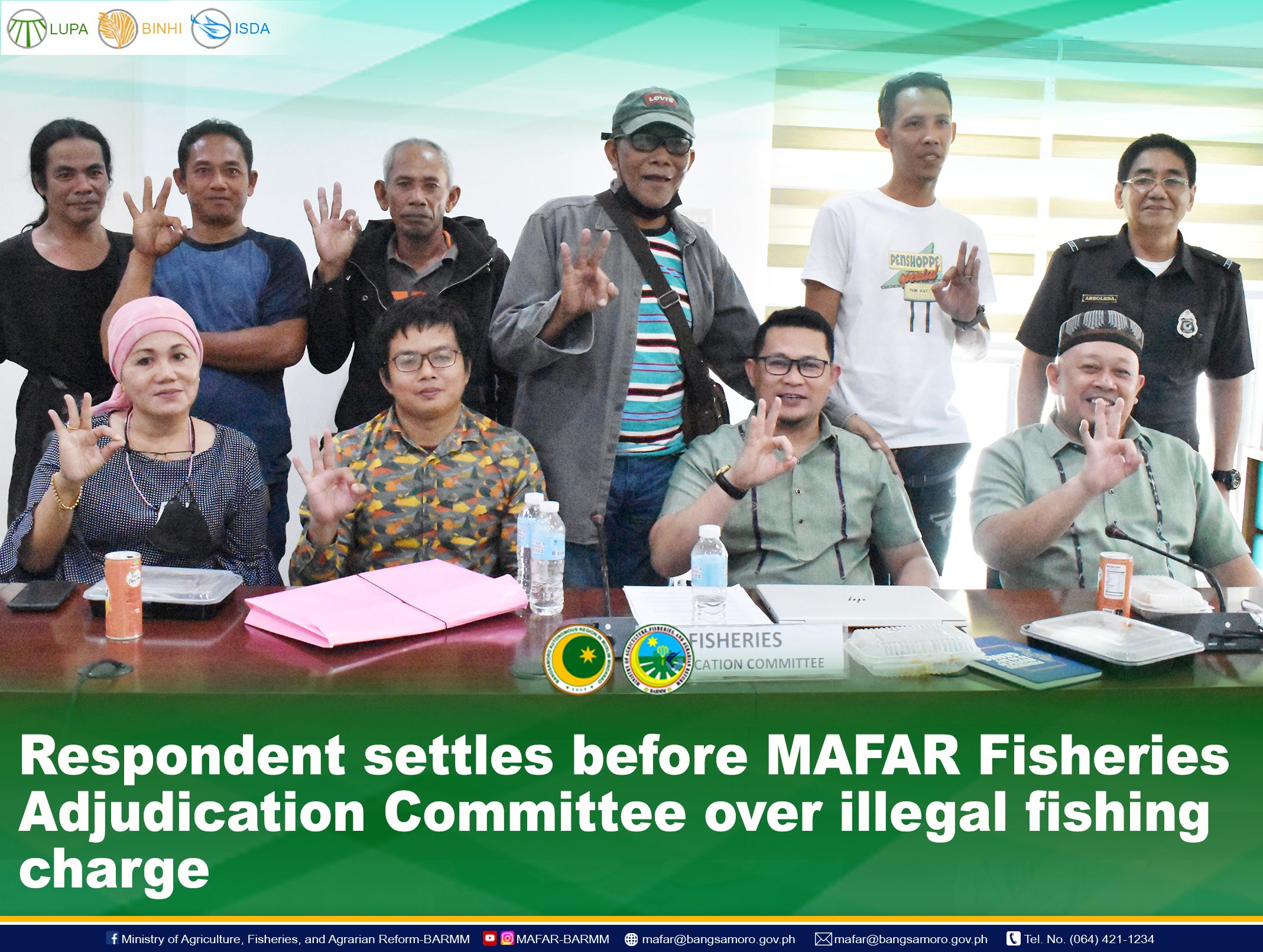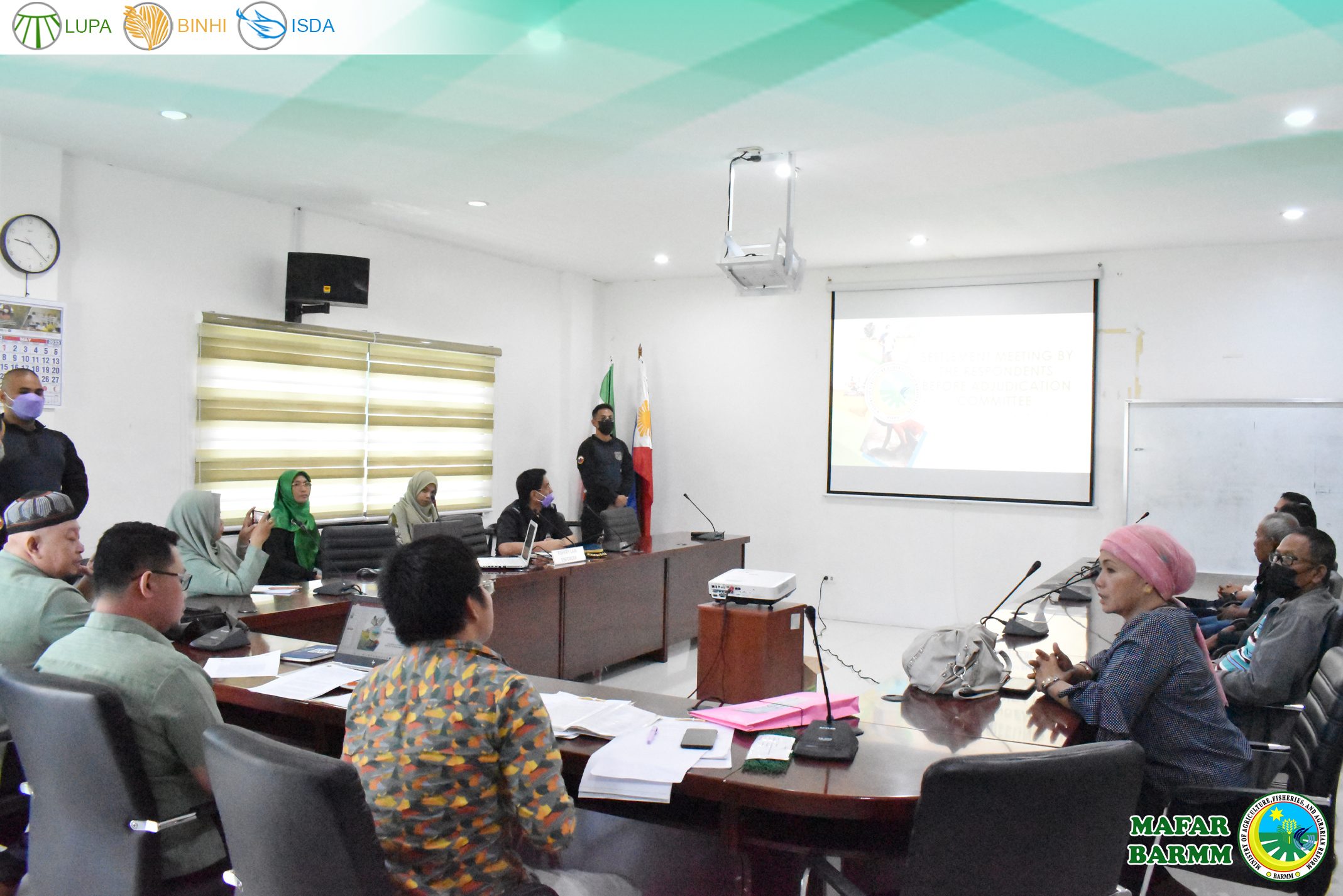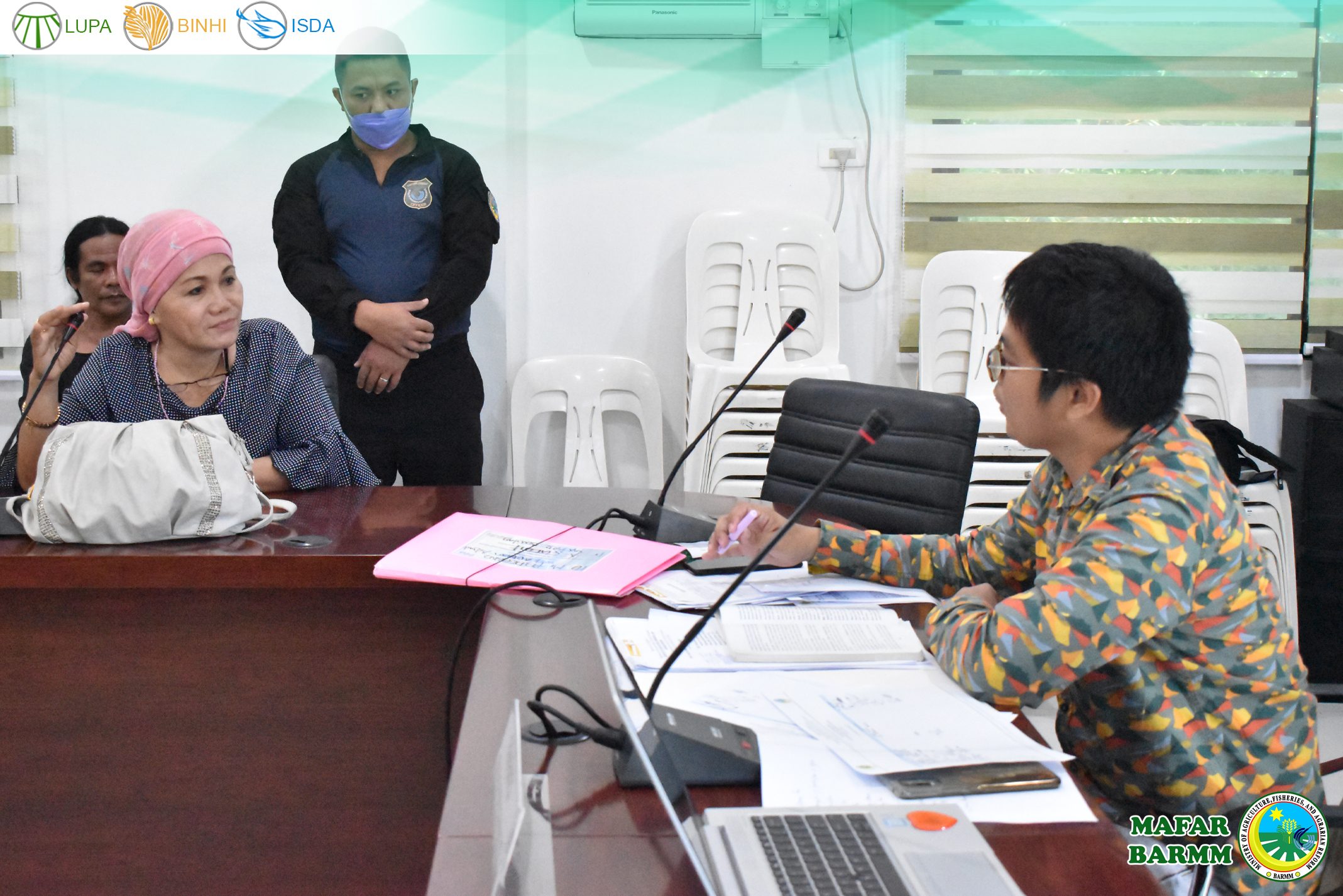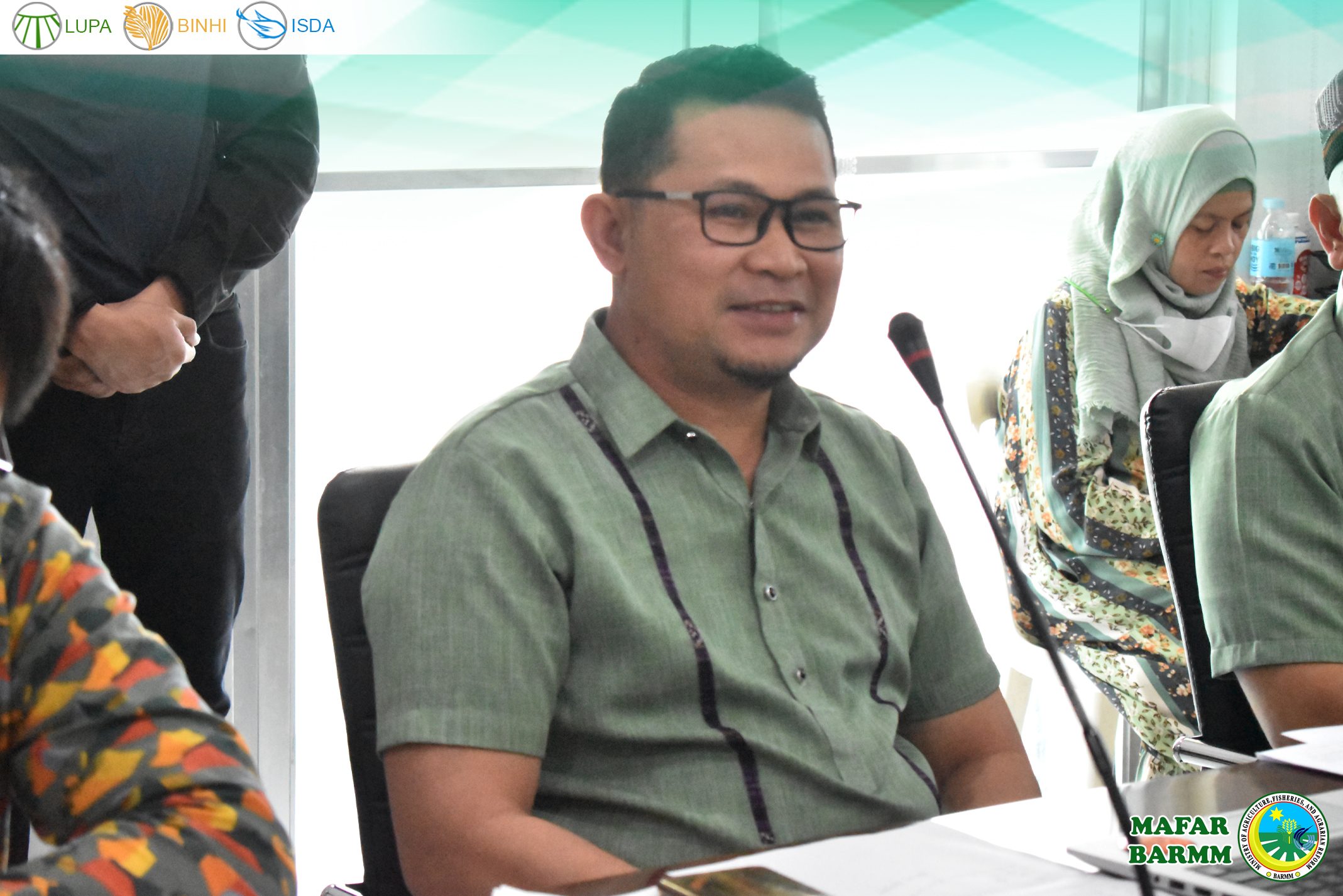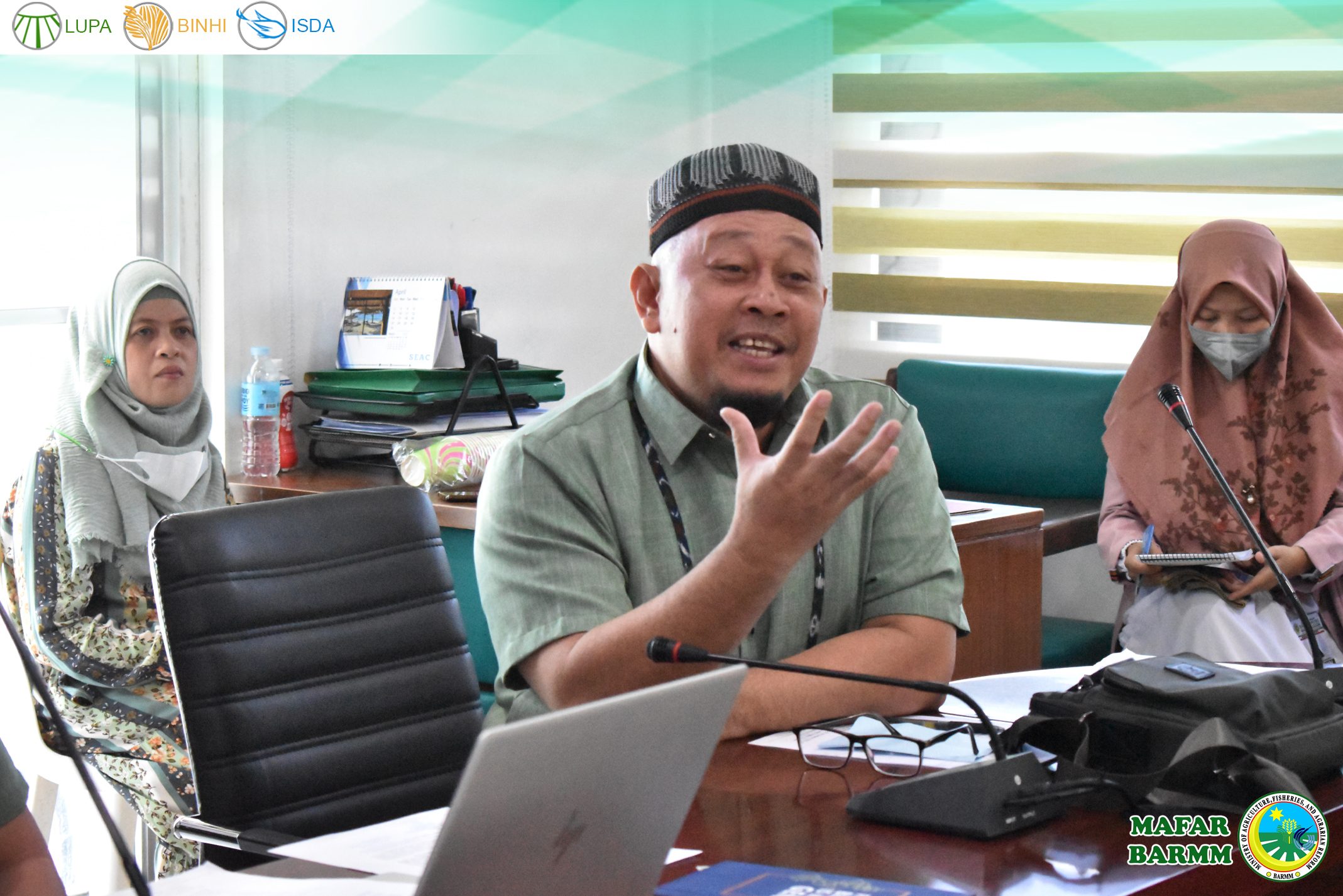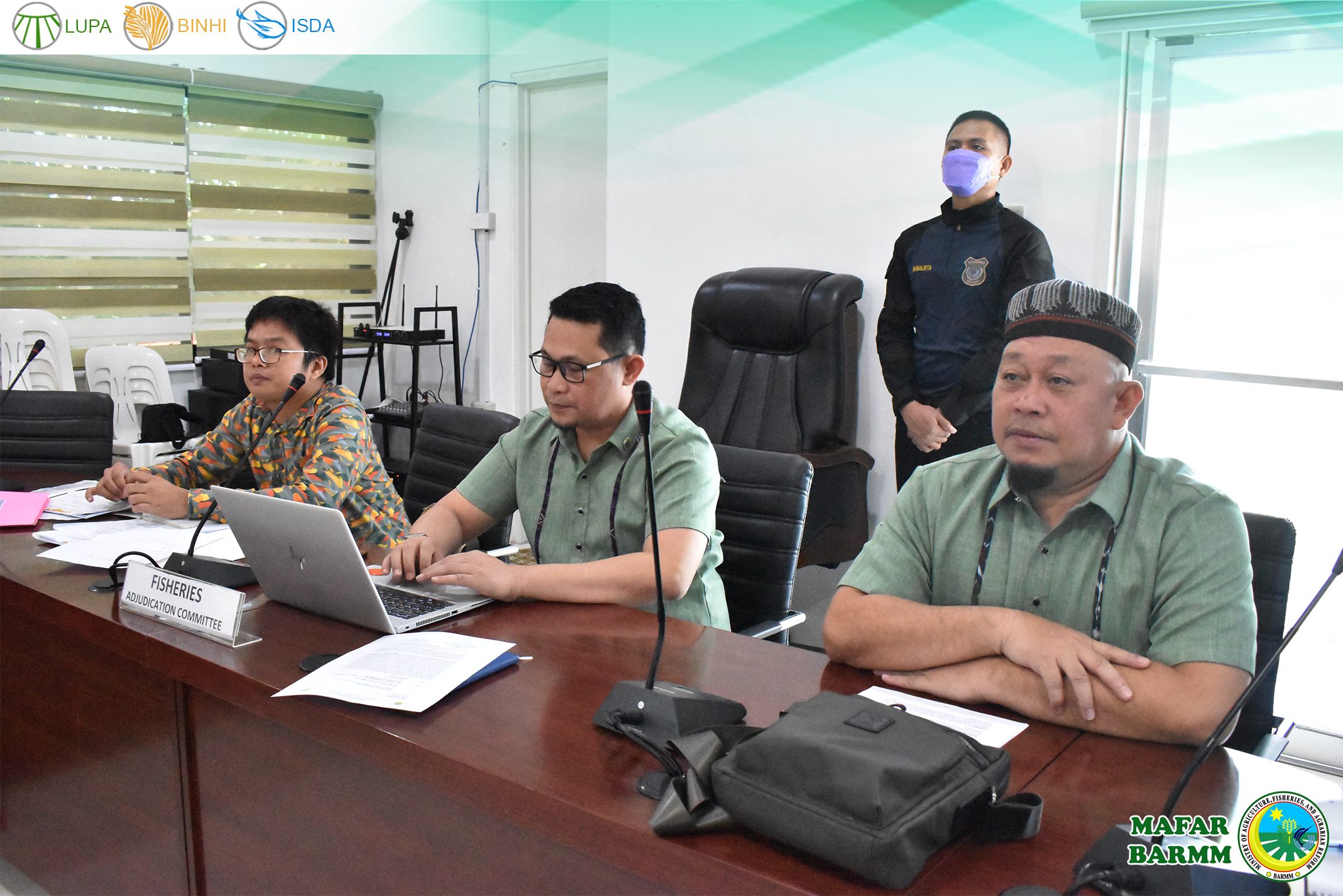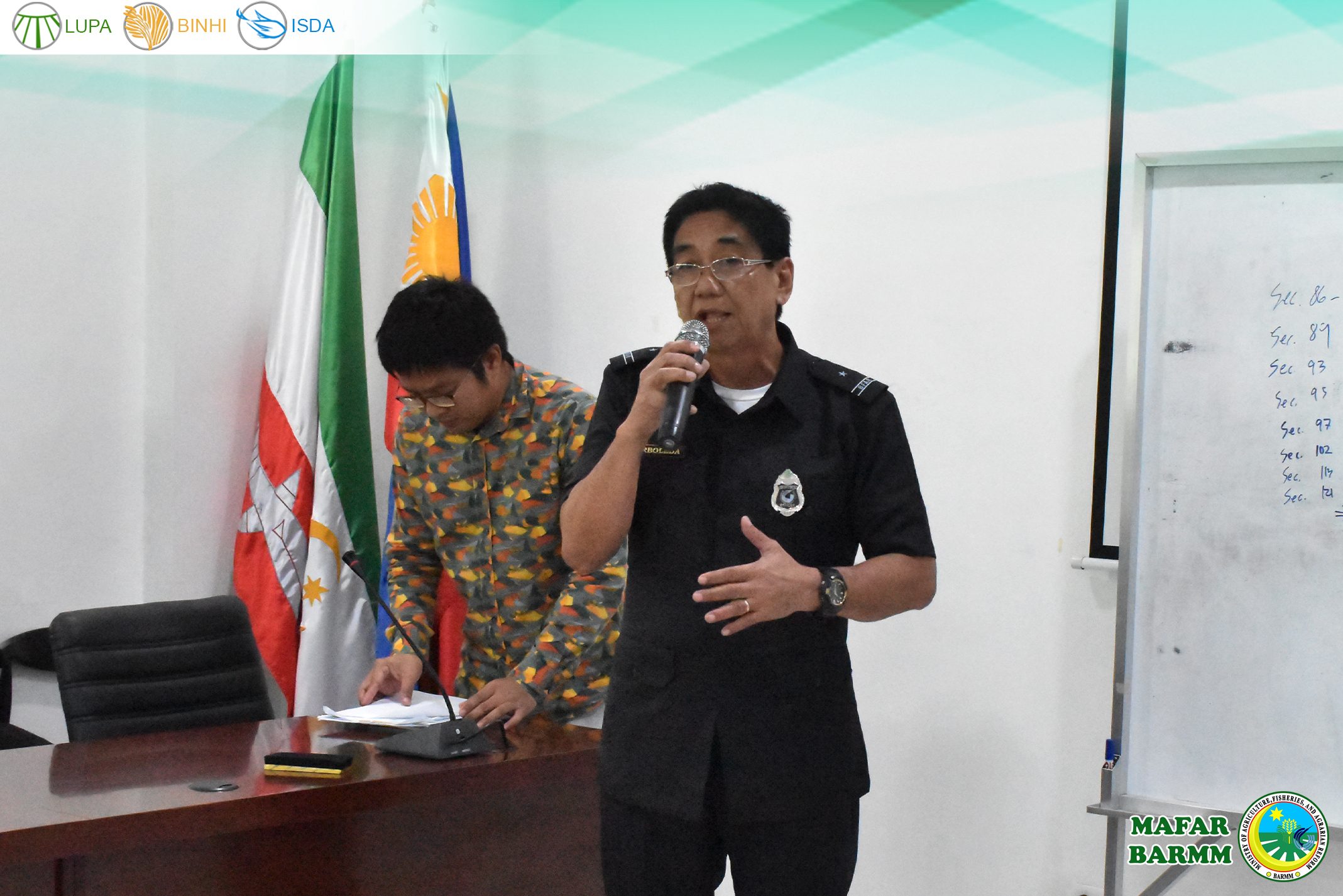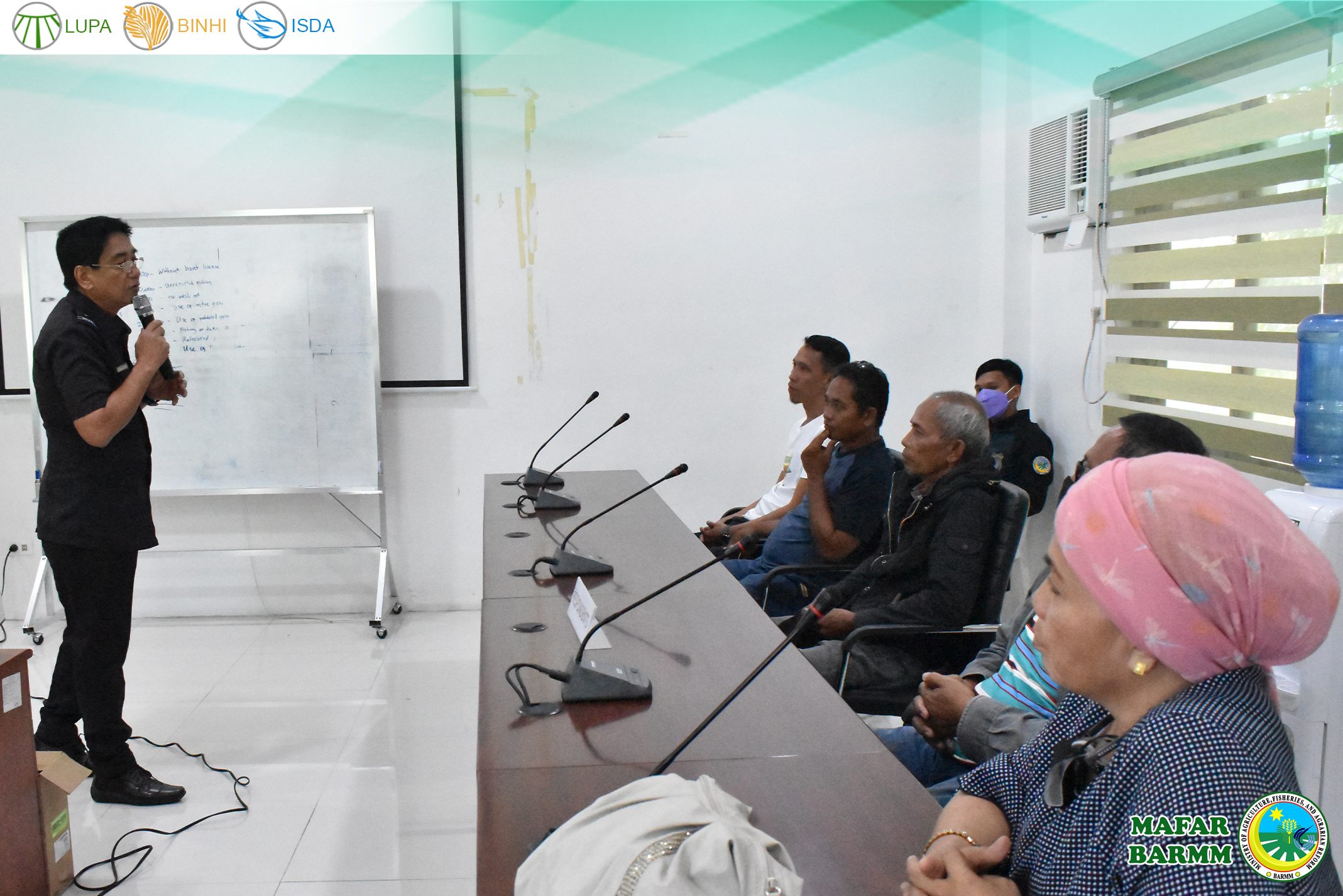Respondent settles before MAFAR Fisheries Adjudication Committee over illegal fishing charge
COTABATO CITY – In a step towards upholding moral governance, specifically in the fishing industry, the Ministry of Agriculture, Fisheries, and Agrarian Reform Fisheries Adjudication Committee has successfully settled a case against a respondent charged with illegal fishing at MAFAR Conference Room, BGC, Cotabato City.
On May 2, Chairman of the Fisheries Adjudication Committee Director General Pendatun S. Patarasa, MPA, Director II for Fisheries Research and Regulatory Services Mohammadtaha S. Pendaliday, Ph.D., Chief of Monitoring Control Surveillance Eduardo E. Alboleda, and Fishing Regulation Officer I (Hearing Officer) Prince Raiz L. Solano gather to hear and decide an administrative and adjudication actions to the respondents who have a complaint file for violating the Philippine Fisheries Code as amended in RA 10654.
The MAFAR Fisheries Adjudication Committee is a government agency with jurisdiction to hear and decide administrative and adjudication actions involving fisheries cases.
During the settlement meeting, the respondent acknowledged and agreed to settle the case, avoiding a formal hearing. As part of the settlement, the respondent agreed to pay a significant fine, which will serve as a deterrent to other individuals engaged in illegal fishing activities.
DG Patarasa praised the respondent for their willingness to take responsibility for their actions and commit to positive change. He also emphasized to the respondents that illegal fishing harms the environment and undermines the livelihoods of law-abiding fishers who rely on healthy fish stocks.
Director Pendaliday also added that the settlement intends to help them realize that we have a law that is being enforced that needs to be followed. “Kami sa MAFAR ay ang inyong mga kakampi at handang tumulong para sa ikabubuti ng ating pamayanan.”
The successful settlement is a testament to the government’s commitment to upholding moral governance. This settlement strongly conveys that illegal fishing will not be tolerated and that the fishing industry must be held to high ethical standards.
The MAFAR Fisheries Adjudication Committee hopes this case will serve as a lesson and warning to others engaging in illegal fishing activities and encourage them to engage in lawful and sustainable fishing practices.
In addition, after the settlement, the respondent oriented on Fisheries Law Enforcement and encouraged to practice legal fishing activities. By committing to sustainable fishing practices and emphasizing the importance of moral governance, the respondent vowed to promote responsible and ethical fishing practices in the region.

